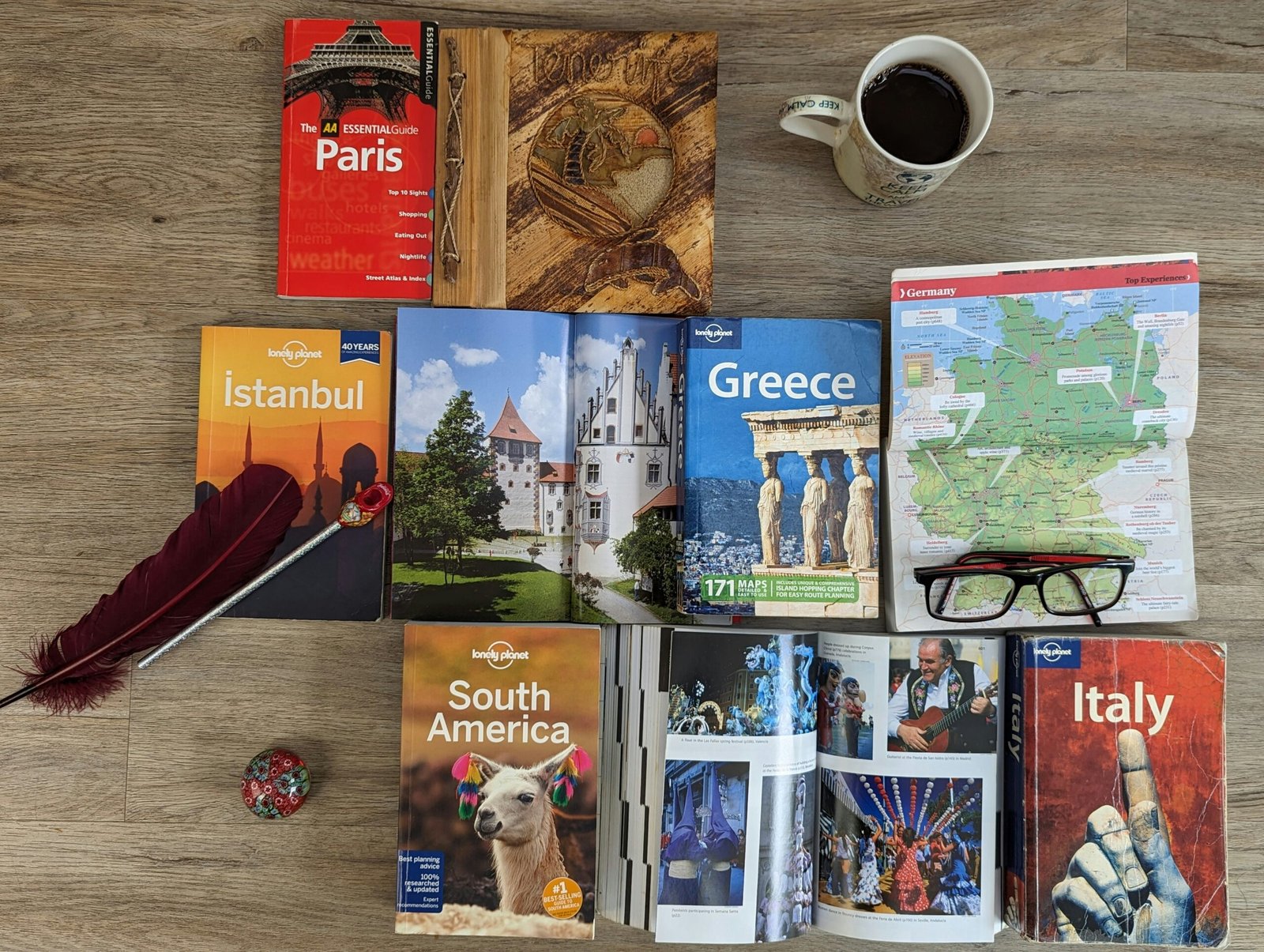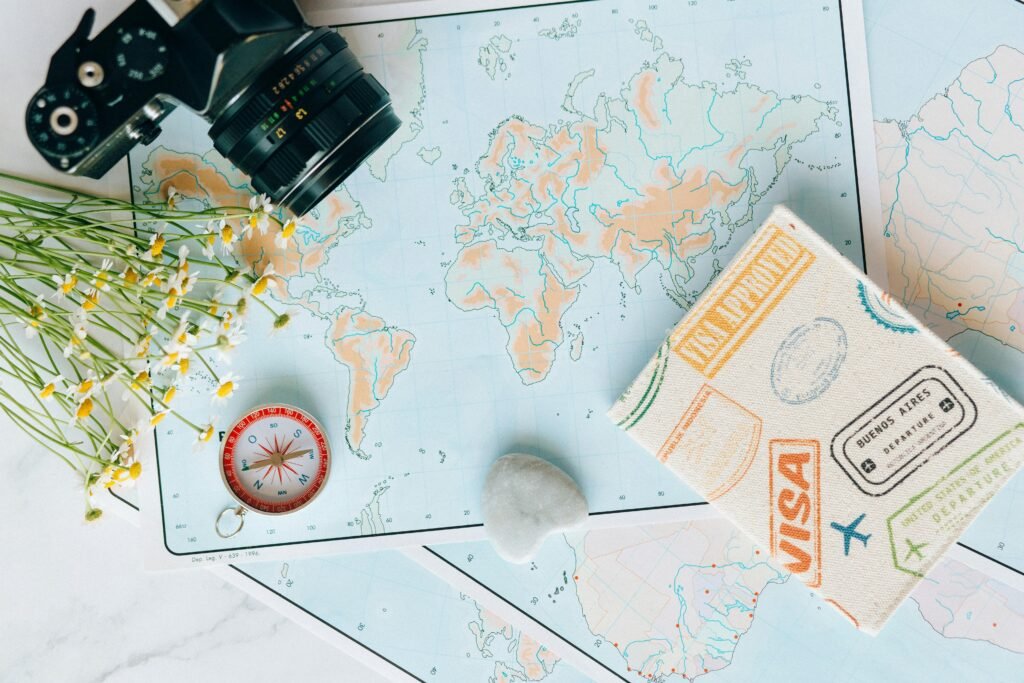Choosing Your Destination
Selecting your first international travel destination can be a thrilling yet daunting task. Understanding your personal interests is the cornerstone of this journey. Consider what excites you the most. Are you drawn to adventure, yearning for a cultural immersion, or seeking a tranquil getaway? Knowing your hobbies, such as hiking, history, or beach lounging, can help you narrow down options effectively.

Your budget plays a critical role in destination selection. International travel costs can vary significantly based on the location, the season, and the duration of your stay. Researching destinations that offer itineraries suitable to your financial plan ensures that you maximize your experience without overspending. Investigate affordable countries or cities that provide a wealth of experiences at a lower cost. Additionally, consider the expenses related to accommodation, dining, and activities, as these often fluctuate widely between regions.
Climate should also influence your decision-making. Depending on the time of year you plan to travel, some destinations may offer better weather than others. For instance, if you prefer warm and sunny conditions, consider visiting locations with pleasant climates during your travel dates. Furthermore, assess your tolerance to various weather conditions and how they might impact your enjoyment.
Lastly, safety cannot be overlooked when choosing your travel destination. Research the political climate, health advisories, and crime rates to gauge the safety of your chosen location. Many resources are available, including travel forums and government websites, to educate you about potential risks and safety measures. Gathering this information will not only enhance your overall travel experience but will help ensure that your first international trip is memorable for all the right reasons.
Understanding Visa Requirements
When embarking on your first international trip, one of the crucial steps in the planning process is understanding the various visa requirements for your intended destination. Each country has specific regulations regarding entry, and these often depend on your nationality and the purpose of your visit. Therefore, it is essential to thoroughly research the visa requirements well in advance of your travel date.
To begin, visiting the official government website of the country you plan to visit is highly recommended. The consulate or embassy page will typically provide reliable and up-to-date information about visa options such as tourist, student, or work visas. Many countries also utilize online visa application systems, which can simplify the process. Additionally, there are comprehensive resources and databases available, such as the International Air Transport Association (IATA) Travel Centre, that can guide you in checking the visa requirements based on your nationality.

Identifying the type of visa you need is critical. For example, if your purpose is tourism, a tourist visa will suffice, but if you plan on studying abroad, you will need a student visa. Each type of visa has different documentation requirements, processing times, and associated costs. Make sure to prepare all necessary documents, including proof of funds, travel itineraries, and accommodation details.
As challenges can often arise, such as delays in the application process or unexpected changes in visa regulations, it’s advisable to apply for your visa as early as possible. Keep in mind that some countries might also require additional resources, like an invitation letter or proof of return travel. By staying informed and preparing adequately, you can navigate the complexities of visa requirements with ease, paving the way for a successful and enjoyable international trip.
Booking Flights: Tips for Beginners
When planning your first international trip, one of the most critical components is booking your flights. This process can seem overwhelming, but with a few strategies, you can navigate it successfully. Start by exploring travel aggregator websites such as Kayak, Skyscanner, or Google Flights. These platforms allow you to compare prices across multiple airlines, presenting you with a broader range of options. By using filters, you can find flights that match your budget and scheduling needs more efficiently.
Flexibility with your travel dates can significantly influence the cost of your flight. If you have the ability to adjust your departure and return days, you may discover lower fares. Prices can fluctuate based on demand and time of year, so flying midweek or during off-peak seasons often results in savings. Many travel aggregators have features that enable users to see price trends for different dates, allowing you to choose the most economical options available.
In addition to price comparison and the flexibility of travel dates, finding the best deals can also involve signing up for fare alerts. Many websites offer email notifications that inform subscribers when ticket prices fall for specific routes. This proactive measure can be particularly helpful for beginners who may not have the time to monitor prices themselves.
Understanding luggage policies is equally crucial when booking your flights. Different airlines have varied regulations regarding both carry-on and checked baggage, which can lead to unexpected fees at the airport. Before finalizing your booking, carefully review these rules to avoid any surprises upon arrival or departure.
Lastly, consider the total travel time, including layovers, when selecting your flights. Shorter travel durations generally lead to a more pleasant experience, but sometimes longer flights can be more cost-effective. Balancing these factors is essential for making an informed decision that aligns with your traveling preferences.
Finding the Right Accommodation
Choosing the right accommodation is a crucial step in planning your first international trip. With numerous options available, it is essential to identify which type fits your budget and personal preferences best. Major accommodation types include hotels, hostels, and vacation rentals, each offering unique benefits. Hotels often provide a range of amenities such as room service and concierge services, making them an attractive choice for those seeking comfort and service. Hostels, on the other hand, are ideal for budget-conscious travelers and tend to foster a social environment, making them perfect for meeting fellow adventurers. Vacation rentals, found on platforms like Airbnb, offer the opportunity to enjoy a home-like experience, often with the conveniences of a kitchen and more space.
When searching for accommodations, location should be a primary consideration. Opting for a centrally located option can save time and money on transportation, allowing more flexibility to explore the destination. Think about proximity to public transportation, attractions, and dining options when assessing potential places to stay. Consider what neighborhood characteristics are appealing, as certain areas might provide a quieter atmosphere or a vibrant nightlife that suits your travel style.
Reading reviews is another essential part of the process. These insights can provide a clearer picture of what to expect from the accommodation. Look for recent reviews that highlight cleanliness, staff responsiveness, and noise levels. It’s beneficial to focus on multiple sources to compare experiences and check for consistent feedback across platforms. Popular booking sites like Booking.com, Expedia, and TripAdvisor not only offer great deals but also user-generated content that can help you make informed decisions.

Preparing for Cultural Differences
Traveling internationally offers a unique opportunity to engage with diverse cultures, each possessing its own set of practices, values, and social norms. To ensure a smooth and respectful experience, it is crucial for travelers to prepare for cultural differences before embarking on their journey. Understanding the cultural context of the destination can significantly enhance the travel experience and prevent potential misunderstandings.
One of the first steps in preparing for cultural differences is conducting thorough research on local customs. This can include understanding greetings, dining etiquette, and appropriate behavior in different situations. For instance, in some cultures, it may be customary to remove shoes before entering a home, while in others, direct eye contact or firm handshakes might be perceived differently. Familiarizing oneself with these nuances can help travelers navigate social interactions with more confidence.
Language plays a vital role in bridging cultural gaps. Learning a few basic phrases in the local language not only demonstrates respect but also facilitates better communication. Even simple greetings or expressions of gratitude can create a warmer atmosphere and encourage positive interactions. Many resources are available, from language apps to phrasebooks, enabling travelers to pick up essential phrases before their trip.
Furthermore, understanding behavioral norms is essential. For instance, concepts of personal space and time can vary greatly between cultures. In some regions, punctuality is critical, while in others, flexibility may be the norm. Being aware of these differences can assist travelers in adapting their expectations and behaviors accordingly.
In conclusion, the ability to adapt to cultural differences is a skill that enhances international travel experiences. By undertaking diligent research, learning key language phrases, and grasping behavioral norms, travelers can foster meaningful connections and navigate their new environments with respect and understanding.
Essential Travel Apps
As technology continues to evolve, travel apps have become indispensable tools for enhancing the travel experience, especially for beginners planning their first international trip. A variety of applications cater to different aspects of travel, including navigation, translation, booking accommodations, and managing budgets. By utilizing these user-friendly apps, travelers can make informed decisions and streamline their journey.
One of the most essential categories of travel apps is navigation. Google Maps stands out as a reliable option, providing comprehensive maps, real-time directions, and the ability to download offline maps for areas with limited connectivity. Additionally, Waze offers unique features like user-reported traffic updates, which can save valuable time during travels. Both apps are ideal for beginners seeking ease of navigation in unfamiliar territories.
In an increasingly globalized world, overcoming language barriers can significantly enhance one’s travel experience. Translation apps such as Google Translate and iTranslate facilitate effective communication in foreign languages. These apps allow users to input text or use voice commands to receive instant translations. Furthermore, many offer offline capabilities, ensuring that travelers remain connected even without internet access.
For booking accommodations and activities, apps like Booking.com and Airbnb provide a user-friendly interface, enabling travelers to search, compare, and secure lodging that meets their needs. With extensive reviews and real-time pricing information, these apps make it simple for beginners to find suitable options that fit their budgets.
Lastly, managing travel finances can be challenging, but budgeting apps such as Trail Wallet and Travel Mapper assist in tracking expenses effortlessly. By maintaining oversight of travel budgets, users can enjoy their trip without the stress of financial mismanagement. Overall, integrating these essential travel apps into one’s travel routine can significantly enhance the overall experience, allowing travelers to focus on making lasting memories.
Safety Tips for International Travelers
When embarking on your first international trip, prioritizing safety is essential to ensure a worry-free experience. One of the primary strategies for personal safety is to remain vigilant and aware of your surroundings. Understanding local customs and traditions can significantly help travelers navigate unfamiliar environments. For example, learning basic phrases in the local language can foster goodwill and aid in clear communication, potentially averting misunderstandings.
Establishing a reliable system for emergency contacts is another critical safety consideration. Before departure, make a list of relevant local emergency numbers, such as police, medical services, and your country’s embassy. Share this information with trusted friends or family members to maintain communication channels in case of unforeseen circumstances. Additionally, inform someone of your travel itinerary, allowing them to track your movements during your trip.
Health precautions should also be a focus for international travelers. Researching destination-specific health advisories, such as vaccinations and necessary medications, will contribute to your overall well-being. Carry a basic health kit that includes essential items like antiseptics, pain relievers, and any prescription medications, ensuring they are in their original packaging alongside a doctor’s note, if necessary. Travelers should also consider travel insurance, which provides coverage for medical emergencies, trip cancellations, or lost belongings. Policies vary, so it is crucial to assess your travel needs and obtain comprehensive coverage tailored to your itinerary.
In summary, while the excitement of exploring new destinations may dominate your thoughts, putting safety at the forefront will enhance your international travel experience. By adopting personal safety strategies, establishing emergency contacts, staying informed about health precautions, and securing proper insurance, first-time travelers can mitigate risks, allowing them to immerse themselves in the beauty of their surroundings with peace of mind.
Packing Essentials for Your Trip
Packing for your first international trip can be a daunting task, especially for beginners. However, developing a strategic packing list tailored to your destination’s climate and planned activities can significantly enhance your travel experience. Start by assessing the weather conditions at your chosen destination. Research the average temperatures and precipitation levels for the time of your travel, as this will dictate the types of clothing you should pack.
When prioritizing what to pack, focus on versatile items that can be layered and combined to suit various settings. Consider including breathable fabrics for warmer climates and heavier materials for cooler seasons. Additionally, incorporate clothing suitable for both daytime excursions and evening outings to maximize your wardrobe’s versatility.
To pack efficiently, consider utilizing packing cubes. These organizational tools allow you to compartmentalize your belongings, making it easy to find essentials while on the go. By categorizing your items—clothing, toiletries, and accessories—you not only keep your suitcase organized but also make the repacking process smoother during your travels.
Furthermore, prioritize packing light to avoid overburdening yourself with excessive luggage. A general rule of thumb is to aim for a maximum of three pairs of shoes, including one pair suitable for walking, one for casual outings, and perhaps a dressy option. This triad will cover most travel scenarios without overwhelming your suitcase.
Do not forget to include necessary travel documents. Make copies of your passport, visas, and travel insurance, and store them separately from the originals. Having a digital backup on your phone or a secure cloud service can also provide peace of mind during your journey. By taking these precautions and packing thoughtfully, you will be well-equipped for a joyful and stress-free journey abroad.
Final Checklist Before You Go
Preparing for your first international trip can be an exciting yet overwhelming experience. To ensure a smooth departure, having a final checklist is essential. This list will help minimize last-minute stress and ensure that you have everything in order before you leave.
Firstly, it is crucial to create copies of important documents. This includes your passport, visa, travel insurance details, and any confirmation emails for flights and accommodations. Keep these copies in a separate location from the originals, and consider storing digital copies in a secure cloud service for easy access. Having these backups can provide peace of mind in case of loss or theft.
Next, confirm all your bookings. Double-check flight times, accommodation reservations, and any activities you have planned. A quick review can prevent unexpected issues, such as missing a booking or encountering time zone confusion. It is also a good idea to check for any travel advisories or entry requirements related to your destination, as they can change before your trip.
Additionally, notifying your bank is a critical step often overlooked. Inform them of your travel dates and destination to avoid any disruptions to your credit or debit card usage. This precaution helps prevent your card from being flagged as suspicious, ensuring you can access your funds without issues.
Lastly, a final packing check is essential. Create a packing list to ensure you have all necessary items, including clothing appropriate for your destination’s climate, toiletries, and any electronic devices, along with their chargers. Consider packing a small carry-on bag with essentials to cover unexpected delays or lost luggage. By following this checklist, you can set yourself up for a successful and enjoyable international adventure.
